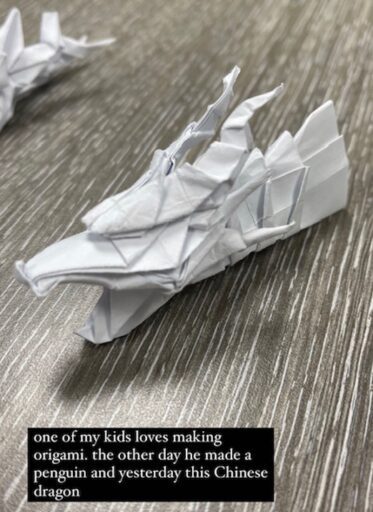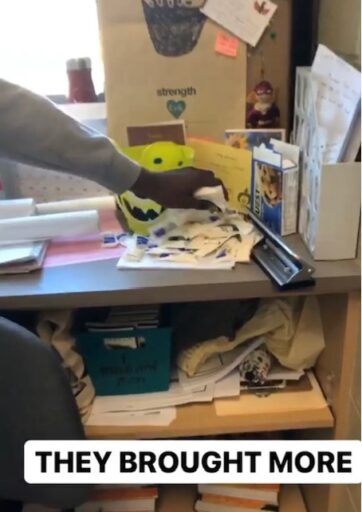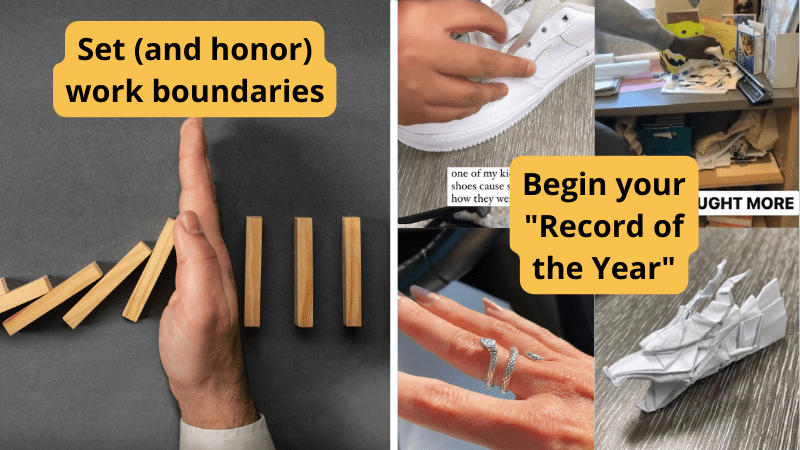For most people, the “new year” starts on January 1, a date that marks a chance to start fresh and begin again. For teachers, the “new year” has an entirely different meaning, occurring in late summer and marking the return to school with a new group of students.
I’ll confess: The first day of school isn’t my favorite. Though I know with time the ease and comfort I felt with last year’s students will come, the first day is also full of unpredictability and a disconcerting newness. To make the return to school a little easier, here are a few first-day teacher rituals anyone can use to set themselves up for success.
1. Jot down initial impressions
The first few days of school are such a rush of new dynamics and information that we’re often moving too quickly to process the moment. At the end of the first day, jot down your initial impressions of each class: the students who might need a different seat, whether a class seems more chatty and energetic or quiet and reserved, and which activities were most successful. Amid the chaos and flurry, this allows you to process and make a plan for the days ahead if any quick adjustments should be made.
2. Begin a “Record of the Year”
When my children were little, I made it a point to write down in my planner one small thing about them to remember each day. These weren’t the major milestones and memories documented in the baby book. These were funny things they said, the discovery they loved blueberries, a fun trip to the park … I carried this practice with me into teaching as well, starting the running record on day one of each new school year. It’s become a habit that encourages me to see the good in each day and to appreciate the students’ tiny victories and glimpses of personality.
Here’s how it translates to the classroom. In planners, notebooks, and on Twitter and Instagram Stories, I record those notable yet easily forgettable moments and interactions with kids that would otherwise evaporate with time. I suggest starting your record of these funny quotes and shared moments with the students as a first-day teacher ritual. The practice encourages an appreciation and awareness of the best and most meaningful parts of teaching. (As an added perk, it later helps with creating a Kahoot for each class featuring memories from the school year, one of my favorite last-day-of-school activities to do with the kids.)
One of the many memories I documented last year is a student with a love and talent for origami:

I love to document the small gestures of kindness kids show:


Documenting the silly moments is a key aspect of enjoying each school year to the fullest. This is from the year my ninth graders heard me say I liked mayonnaise and then ensured I had a never-ending supply:


The record of the school year is to capture the ephemeral nature of children—to hold the special everyday memories of the brief time spent with them.
3. Set (and honor) work boundaries
Just as we start the year by setting expectations for students, we should do the same for ourselves. Some teachers plan to hit the gym before school each day; others commit to leaving within 20 minutes of dismissal. Whatever your plan for self-care and sustainment, commit to it starting on day one. The adrenaline of starting a new year can make it tempting to stay at school longer and do “just one more thing.” In order to preserve energy and prevent burnout, it’s crucial for teachers to protect their well-being by setting healthy boundaries. Create your personal plan and begin holding yourself to it on the first day. Your end-of-year self will thank you!
Still wondering how to set firm boundaries and manage the workload? Here are some healthy and sustainable boundaries for school-life balance that even new teachers can implement:
- If you must get work done on the weekend, choose one day to spend on it and leave the other weekend day free.
- Finding it hard to avoid checking email after hours? Commit to waiting until the next contract day has begun to respond. This creates a reasonable expectation of when you will respond to communication. (But if you can … don’t check email after hours!)
- Allow yourself 10 to 15 minutes once home to talk (or vent) about the school day, and then change topics. Part of leaving school is also mentally disconnecting from school!
- Leave your work device at school as often as you can. It can be tempting to open it up once you’re home to edit lesson plans, curate resources, or answer emails. Leaving it at school ensures you will spend the time at home on more restorative activities.
- Preschedule a future day of PTO (if you have time available). A scheduled date to recharge in the future can help reduce the day-to-day overwhelm. It also ensures you’ll use those valuable days off. (It should go without saying: Don’t do work for school on the day off!)
4. Establish connections with home
Select a handful of students and reach out to their adults at the end of the first day. You can share something that stood out or just to say you look forward to teaching their student. At the end of one year, a student whose mom I’d called on the first day let me know how much that simple action had meant. “Thank you for showing me the importance of properly establishing connections with others,” he wrote. Families (even of “big kids”) are just as full of nerves as we are on the first day. A simple call or email home can make so much more of a difference than we may realize.
5. Start building community on day one
If you haven’t read up on how I use attendance questions, go check it out. This is by far my favorite way to connect with students. It’s a low-stakes, high-interest way to build positive classroom culture (and have hilarious conversations while doing so).
As “the new year” begins, a teacher’s days are filled with district-mandated requirements, professional development, and meetings. In the midst of the flurry and chaos, these first-day teacher rituals keep me grounded and sustained. Adding these to your back-to-school plans this year can help you start and end the year strong.
Do you have a favorite first-day ritual? Let us know in the comments!
Looking for more articles like this? Subscribe to our newsletters.


